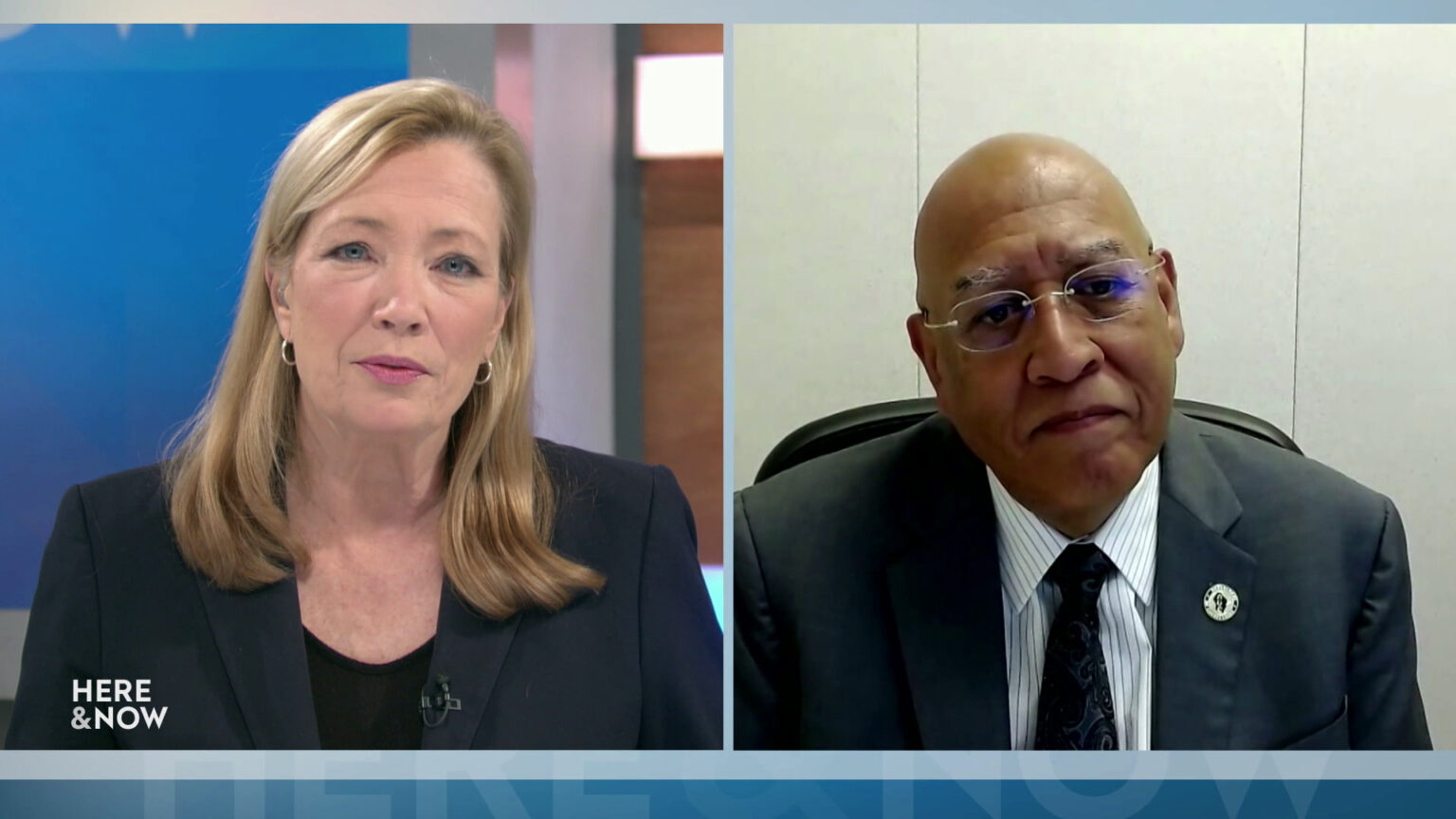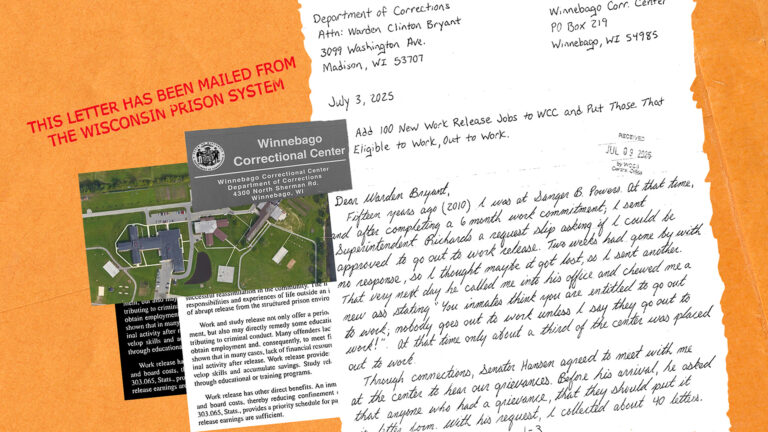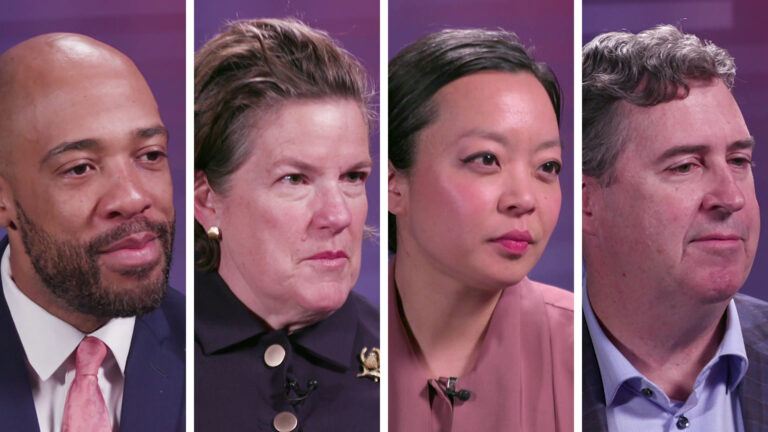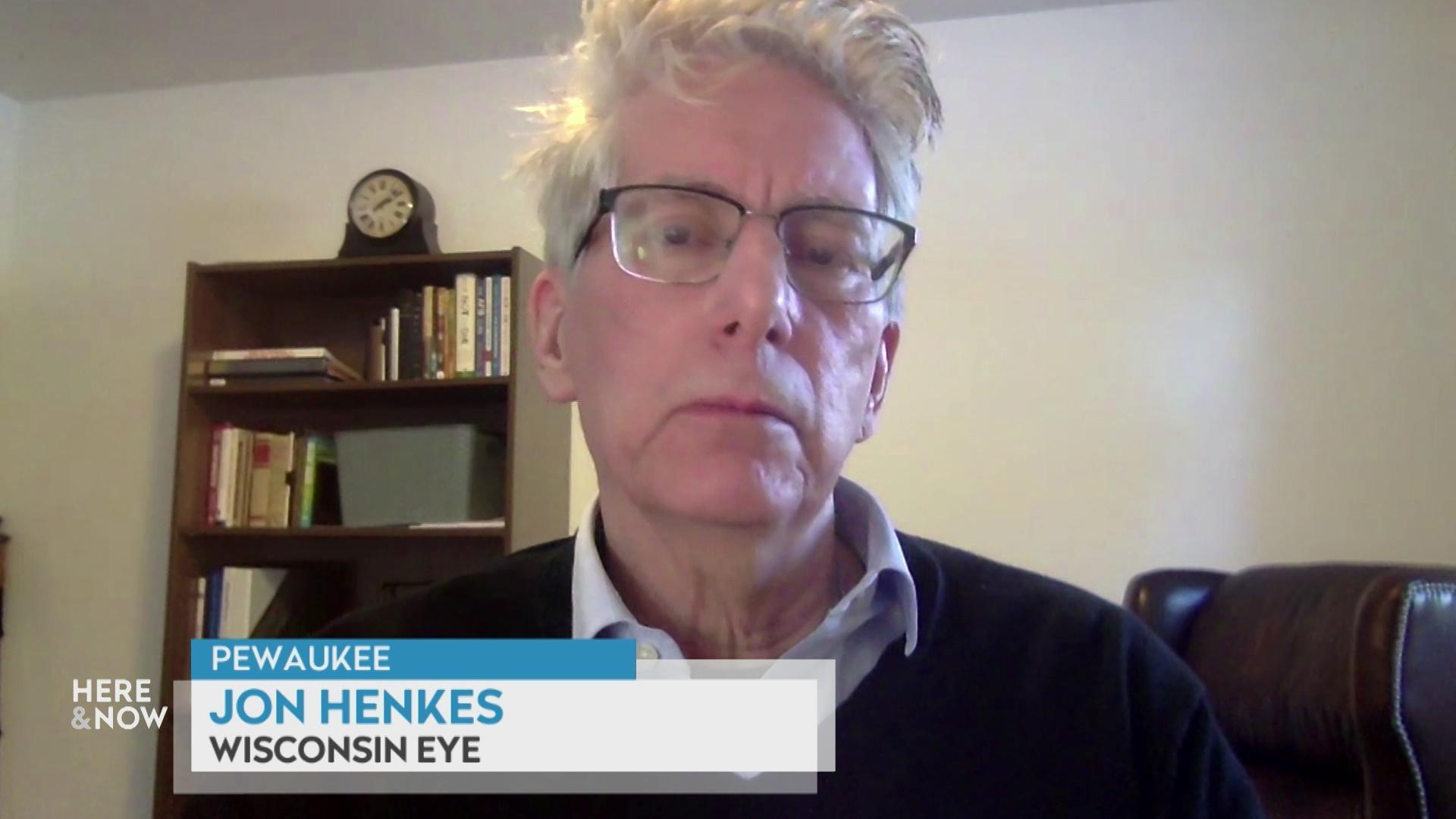'Here & Now' Highlights: Kevin Carr, Alyssa Kenney, Linda Gentes
Here's what guests on the December 16, 2022 episode said about relocating Wisconsin's youth prisons, why the state is asking internet consumers to check and challenge FCC descriptions of their service, and responses to the end of in-person classes at UW-Platteville Richland.
By Frederica Freyberg | Here & Now
December 19, 2022

Frederica Freyberg and Secretary Kevin Carr (Credit: PBS Wisconsin)
The Lincoln Hills School for Boys in Irma has been slated to close for four years because of its troubled history of dangerous conditions for inmates and staff — Secretary Kevin Carr of the Wisconsin Department of Corrections discussed why a new location in Milwaukee is better suited for the facility. The Wisconsin Public Service Commission wants customers to file challenges with the Federal Communications Commission over its map showing state broadband coverage if they don’t have adequate or any service — Alyssa Kenney, the agency’s director of broadband and digital equity, explained why. Richland County Supervisor Linda Gentes described the importance of UW-Platteville Richland’s two-year college to its local community after the announcement that it will stop offering in-person classes in the 2023-24 academic year.
Secretary Kevin Carr
Wisconsin Department of Corrections
- Closing the Lincoln Hills School for Boys is one step closer after the Milwaukee Plan Commission approved rezoning a property on that city’s northwest side to replace the juvenile correctional facility in the community of Irma in Lincoln County. Preparations are also underway to relocate the Copper Lake girls correctional school at the same location. The state has long wanted to close the northern Wisconsin facility because of dangerous conditions, and after recognizing it was too far away from the Milwaukee homes of most of the juveniles sentenced there.
- Carr: “When our administration took over in 2019, we looked at Hills and Copper Lake and it was operating with a more punitive model of corrections. We have turned Lincoln Hills and Copper Lake into a more treatment-oriented facility based on dialectical behavioral therapy and a new behavioral management system that promotes relationship development and rewards prosocial behavior. So we’re more focused on providing treatment that’s based on best practices in this industry and trauma informed care principles. “
Alyssa Kenney
Broadband and Digital Equity Director, Public Service Commission of Wisconsin
- The Federal Communications Commission has issued an updated broadband map intended to indicate the level and breadth of internet services across the United States. At the same time, the federal government will distribute as much as $1.2 billion dollars in grants to the state based on its high-speed internet coverage needs. The Public Service Commission is asking consumers to look at the FCC map and see what coverage is shown for their address. If a particular location does not, in fact, have the coverage claimed on the FCC map — at least 25 megabits download and three megabits per second upload — the agency is asking the resident to file a challenge so that Wisconsin can receive the maximum federal funding.
- Kenney: “If you look at the older standard of “25 by 3,” there’s about 650,000 people or 230,000 sort of locations in the state where people don’t have access to broadband. And there’s plenty of other people that I always like to say that can’t afford the broadband that’s available, which is a different and also an important problem for us to be focused on.”
- Consumers have until January 13, 2023 to challenge information on the FCC map.
Linda Gentes
Supervisor, Richland County Board
- The University of Wisconsin System announced in late November that its two-year college in RIchland Center will no longer offer in-person classes after the spring 2023 semester. UW-Platteville Richland had an enrollment of around 60 students in the fall 2022 semester, down from over 500 in 2015.
- UW System President Jay Rothman issued this statement about the closure: “Ending in-person instruction at Richland campus was a very difficult decision. We are facing the same kind of enrollment challenges that two-year colleges are facing across the country. With student enrollment this fall at 60 students, we are not able to provide a high-quality college experience for students while maintaining our fiduciary responsibility to have sound university operations.”
- The closure of in-person instruction has been demoralizing to students and community members, said Gentes, who has also been an administrator and lecturer on the campus.
- Gentes: “We have 134 acres. We have seven buildings. The campus is probably worth at least $38 million. … For every dollar that our county puts into the campus, we received $205 back. Now, in addition, just recently, I just quickly made a list of all the professionals in town who had started their education here. I came up with over 200 names without even trying to ask anybody. Our teachers, our lawyers. We have physicians, attorneys [and] nurses. They’ve all been able to start their education here in the community and then go on and then be able to come back. And it was affordable for them to be able to do that. So we feel this is a great loss. It’s our future. We’re losing our future for our community and our future for our students.”
Watch new episodes of Here & Now at 7:30 p.m. on Fridays.
 Passport
Passport











Follow Us